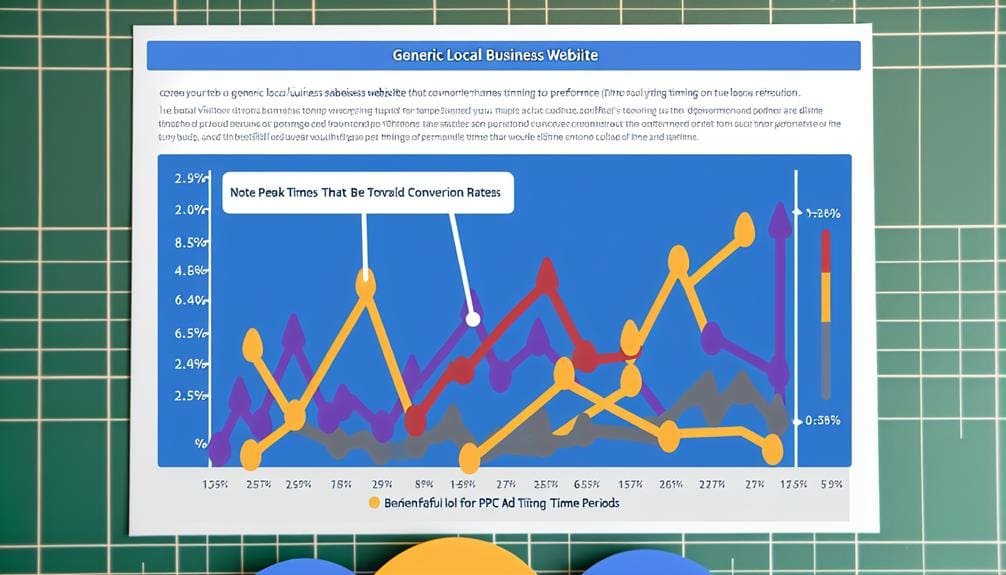Why Should Your Blog Focus on Regional Keywords?
Reading Time: 4 minutes As bloggers, we understand the pivotal role of keywords in driving online visibility. However, have we truly tapped into the potential of regional keywords? The answer lies in the substantial impact these geo-specific terms can have on our digital presence. From heightened local relevance to a competitive edge in the market, the benefits are undeniable. But how exactly can focusing on regional keywords revolutionize the way our blogs connect with the audience? Let's explore the compelling reasons that make regional keyword optimization a game-changer for any blog looking to make a mark in the digital sphere. Importance of Regional Keywords Why are regional keywords crucial for businesses aiming to enhance visibility and target specific audiences in the digital market? Local keywords are essential for businesses looking to improve their local search rankings and connect with local audiences. By incorporating local keywords into their content strategy, businesses can enhance their visibility on search engines like Google, ensuring that their content appears in relevant local search results. This is crucial for local businesses seeking to attract nearby customers. Local keyword research enables businesses to understand the local search behavior and trends, allowing them to tailor their content to match the specific demands of their local audience. Utilizing local keywords not only filters out irrelevant search results for users but also offers a competitive edge by catering to the demand for localized and personalized search experiences. Moreover, local keywords play a significant role in local SEO, influencing how high a business's content ranks in local search results. Therefore, businesses must prioritize the incorporation of regional keywords into their content, social media strategies, and mobile optimization to maximize their local SEO and effectively target local audiences. Localized Content Visibility Local businesses can significantly improve their online visibility and connect with specific regional markets by focusing on localized content visibility through the strategic use of regional keywords. When businesses tailor their content to target specific regional audiences, they can enhance their visibility in local search results. By incorporating regional keywords into their blog content, businesses can effectively reach their targeted local audience and improve their search engine ranking for specific geographical locations. This targeted approach allows businesses to address the unique needs and preferences of local customers, leading to higher engagement and conversions. Localized content visibility is essential for businesses seeking to stand out in local search results and capture the attention of their regional audience. Focusing on regional keywords not only increases the chances of reaching local audiences but also allows businesses to differentiate themselves from broader, more generic competition. By strategically integrating regional keywords into their content, businesses can enhance their visibility, improve their search engine rankings, and ultimately drive more targeted traffic to their websites. Targeting Local Search Behavior Understanding the behavior of local searches provides valuable insights into the way regional keywords can effectively target and engage specific audiences in the digitally-enabled business landscape. Local intent is a crucial aspect of local searches, as users often include location-specific terms when seeking products or services. This local intent emphasizes the significance of incorporating regional keywords into a content marketing strategy to optimize your content for local visibility and engagement. Local searches are often influenced by online reviews and the proximity of businesses to the user's location. By understanding local search behavior, businesses can tailor their content to address the needs and preferences of local audiences, thereby establishing stronger connections with local customers. Utilizing regional keywords empowers businesses to align their online presence with local intent, enhancing their visibility and relevance in local search results. Regional Keyword Integration By honing in on local search behavior, businesses can strategically integrate regional keywords to target specific audiences and enhance their visibility and relevance in the local market. Incorporating local keywords into an SEO strategy is crucial for local businesses aiming to appear in the Google 3-pack and rank higher in Google searches. Regional keywords allow businesses to align their content with location-specific search queries, increasing the likelihood of being discovered by local audiences. When integrating regional keywords, optimizing a Google My Business listing with location-specific terms and ensuring consistency across all online platforms can significantly improve visibility on Google Maps and local search results. Data-driven research indicates that businesses leveraging regional keywords experience a competitive edge in the digital market, as they can capture the attention of local consumers actively seeking products or services within their vicinity. As we delve into the mechanics of regional keyword integration, it becomes evident that this approach plays a pivotal role in local SEO strategies, enabling businesses to tailor their online content to the preferences and search behaviors of their local customer base. Maximizing Local SEO Impact To maximize the impact of local SEO, businesses can leverage data-driven strategies to enhance their visibility within their target geographical areas. When it comes to maximizing local SEO impact, it's essential to understand the significance of regional keywords and how they can significantly improve a company's online presence. Here are three key strategies to consider: Utilize Local Keywords: Incorporating local keywords into website content and metadata is crucial for ranking well in localized search results. These keywords should reflect the specific areas a business serves, ensuring that it appears in relevant search queries. Create Location-Specific Content: Developing content tailored to a particular region can boost a website's visibility in local searches. This may include creating location-specific landing pages, blog posts, or service pages that address the unique needs and interests of the target audience. Optimize Google's Local Business Profile: Maintaining an accurate and detailed Google My Business profile is essential for local SEO. This involves ensuring that the business's name, address, phone number, and other relevant information is consistent across all platforms, as well as regularly updating business hours and responding to customer reviews. Frequently Asked QuestionsWhy Do We Need Keywords in Blogs? We need keywords in blogs for SEO benefits, targeting the audience, and improving content relevance. Keyword research, local search, and competition analysis are essential for understanding user intent
Why Should Your Blog Focus on Regional Keywords? Read Post »





















